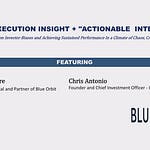Are we finally seeing the effects of tariffs in prices?
Last week, the producer Price Inflation (PPI) spiked to its highest levels in close to four years.
If tariffs were the culprit, we could reverse the inflation by simply ditching them. It would be a problem with an easy solution.
Unfortunately, that’s not what’s happening here.
Last month’s surge in inflation was concentrated in services, which tariffs don’t directly affect. Rather, labor – or the lack thereof – drives service prices higher.
And that’s a tougher nut to crack.
I sat down with Josh Lipton at Yahoo!Finance to break down the inflation report and what it means for the market. Then I shared how you should be approaching this situation as an investor.
Interestingly, stocks barely budged on the inflation news. It seems that the shock wasn’t enough to change Mr. Market’s view that the Fed is about to start dumping liquidity into the system.
Before the news broke, the futures markets were pricing in a 100% chance of a rate cut next month, and a roughly 10% chance that the Fed cut by at least 50%.
Following the PPI news, sentiment shifted. The futures markets are pricing in a roughly 93% chance that the Fed cuts rates by 0.25% and a 7% chance that they hold rates at current levels. Those are lower expectations… but not dramatically lower.
So, for now we should still assume that the Fed is planning to lower rates… inflation implications be damned.
What Should We Do As Investors?
Remember, while the Fed plays an outsized role here, the biggest story is still earnings. Of the S&P 500 companies that have reported for the second quarter, 81% have beaten estimates on earnings per share and revenues. And some of the numbers have been staggering. Meta – Facebook and Instagram’s parent company – posted 22% revenue growth last quarter. That is mind-blowing growth for a company that size.
And we haven’t even mentioned AI yet. The AI boom is creating a massive windfall for America’s largest tech companies. Meta, Amazon, Alphabet, and Microsoft collectively spent $95 billion on capex in the second quarter alone, and a lot more planned. Microsoft plans to spend $120 billion on capital expenditures related to AI over the next year. That’s larger than the entire market cap of Nike or Starbucks.
This boom will eventually bust. It happened during the last major tech bubble in the late 1990s, and it will happen again. It’s inevitable.
But until that day comes, we should ride this trend as far as it goes.
This doesn’t mean throwing risk management out the window or being reckless. I’ve consistently recommended keeping a little more cash on hand than usual and keeping hedges like gold in the portfolio. And in Freeport Investor, I’ve been really diligent about raising our stop losses to lock in gains and pruning none-core positions.
But do continue holding your tech stocks for now. For a nice one-stop shop in the AI trade, take a look at the Xtrackers Artificial Intelligence and Big Data ETF (XAIX). I recommended it back in late December, and we’re up about 12%.
Charles Lewis Sizemore, CFA





